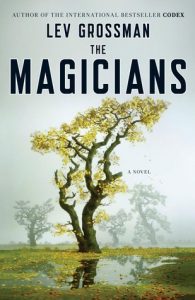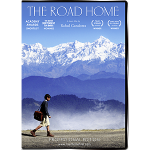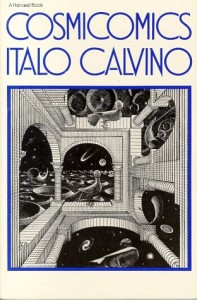Elizabeth Liang reached out to me about her solo show, “Alien Citizen: An Earth Odyssey,” in the week I finished reading Humiliation by Paulina Flores, a book I’d sought out because I wanted to reach into the psyche of a country I once lived in and can never quite let go. Like me, Liang is a TCK, a “Third Culture Kid,” someone who grew up in more than one culture and doesn’t really feel like they have ownership in any culture. In Liang’s case, she is a global nomad who was born in Guatemala to a Chinese-Guatemalan father and an American mother and lived in six countries before going to college. I was born in the U.S. and only lived in two other countries but I felt a deep connection to Liang and was glad to journey with her through her childhood to try and understand mine.
The Intimacy of Personal Address
The majority of “Alien Citizen” is a direct address from Liang to the audience as though she was telling us her life story at a cocktail party. There’s a minimal black set and what look like family photos projected on a screen behind her to ground us in whatever country she’s currently been transplanted to. Liang uses accent, gesture, and language to characterize other people in her life, most evocatively her mother’s waved cigarette and her father’s pointed finger.
The difference between a cocktail party and a show, however, is that the latter requires the performer to keep the audience engaged for the entirety of the performance. Liang delivers on this exceedingly well. She is nakedly honest and sincere about her story and I was riveted as she took me through the highs and (many) lows of her life abroad as Xerox moved her family back and forth between Central America, North America and North Africa. Liang’s emotions are at times raw in all the ways they must have been when she was wrenched from a beloved home or friend or when she found herself becoming in a woman in two cultures that are not friendly to women.
Living an Unreal Life
I don’t talk about my own upbringing much at cocktail parties. When I consider telling people I grew up on three continents, I assume they’ll think I am lying or that the privilege of living abroad will be so unfathomable that I’ll seem like an awful little princess if I discount about any aspect of it. This is the same reaction I had while watching Liang. Even though I should know better, I found myself rankling she seemed to be complaining about her extraordinary life.
It was only by watching through to the end that I realized I was perpetuating (for both of us) the “trying to be the good guest like my parents taught me” that many TCKs feel. That we’re supposed to be cheery and positive and nice because we’re experiencing something beyond most people’s dreams—even as we’re being forcefully pulled away from most of the things we know at a time in our lives when we barely know ourselves. We become so “good at blending” that we “feel like [our] life never happened” and it’s our “fault because [we’re] so good at adapting” and the result is a feeling of “playing make-believe without knowing I’m playing.”
I wasn’t letting her be myriad in the ways that I don’t let myself be myriad.
Once you give yourself “permission to feel the pain, you can be so much more grateful” – Elizabeth Liang, Alien Citizen
I do feel many wonderful things about having had the privilege to travel and live abroad, so much so that I’ve wondered how I can incorporate this into my son’s life. But Liang helped me remember, too, that I don’t spend my spare time seeking out books that will help me understand the cultures I feel like run through my blood (even though I’m certain anyone from those places would consider me a mere Dolezal) because I feel complete and happy and understood.
Liang for allows us inside her struggles and triumphs brings them full circle in a way that helped me more fully understand mine. By being real about the pains, she freed me to experience the joys in the rich, nuanced way that is real life (and to think more holistically about the life I want for my son).
Multilingual Communication
Now that I feel more free to enjoy the fullness of the extraordinary childhood I was treated to, I will say also that I loved how Liang took the freedom to break into Spanish or Arabic during her story. When I was writing Polska, 1994, this is one of the big questions I had to answer—if I break into the language the way I feel it in my body, will I lose people? And the obvious answer is yes, you can, but if you’ve already built trust and momentum with an audience, as Liang did, the audience can and will follow
Geovani Martins addressed something similar in a recent interview in BOMB in reference to his use of Portuguese slang:
Every time a writer explained some slang, I felt like he was telling me: I’m writing this for a specific reader, someone who doesn’t speak like this. I told myself, “Man, I’m going to do the opposite, and use every word I want to use.” Because that’s what literature does. I love Shakespeare, right, but he didn’t make an effort to explain anything to me. If I don’t try to understand it myself, I won’t like him or read him. No great writer in the history of literature has explained things to people in that way. They just wrote their stories in their chosen language and people who liked reading them did so because they were willing to step into the story on those terms. I didn’t understand why it had to be different with me.
By using all her languages in “Alien Citizen,” Liang brings closer the people who can follow her and also envelops the stragglers, carrying them over the hump into something more—a world where we are not just different but also the same, one where tone and gesture speak as loudly as vocabulary.
I could go on for pages about the things I related to in Liang’s show (her relationship with her maids, an irrational fear of conflict, self-silencing and shyness, and more) and some of the things I did not (being racially “other” in the U.S. and transition fatigue). But I don’t want to rob you of the experience of watching it and seeing what you, global nomad or not, might relate to, too. Because we’re all a little alien sometimes, no matter where we come from or where we’re living right now. I learned a lot from Flores’ gorgeous book about the Chile I’ll never really know. From Liang I learned about who I was, am, and want to be. And I’m grateful.
 Was it magic or serendipity that a copy of The Magicians by Lev Grossman showed up in my local Little Free Library the very same week that the related Syfy series showed up on Netflix? I’m not certain, but I can say that reading the book while binge watching the series has me a little convinced that there is magic in the world around me, even if my Popper finger movements haven’t yet led to the dishwasher loading itself. It’s rare that I like an adaptation as much as the book, but experiencing the two together has added a whole new layer of enjoyment to the story and characters for me.
Was it magic or serendipity that a copy of The Magicians by Lev Grossman showed up in my local Little Free Library the very same week that the related Syfy series showed up on Netflix? I’m not certain, but I can say that reading the book while binge watching the series has me a little convinced that there is magic in the world around me, even if my Popper finger movements haven’t yet led to the dishwasher loading itself. It’s rare that I like an adaptation as much as the book, but experiencing the two together has added a whole new layer of enjoyment to the story and characters for me. I understand why we use stereotypes. They are easy shorthand in a world where we don’t want to take the time to look deeply at the people around us–beyond their clothes and their gender and the color of their skin. But running around judging each other based on these exterior factors means we miss the richness of the lives around us. Rahul Gandotra’s short film
I understand why we use stereotypes. They are easy shorthand in a world where we don’t want to take the time to look deeply at the people around us–beyond their clothes and their gender and the color of their skin. But running around judging each other based on these exterior factors means we miss the richness of the lives around us. Rahul Gandotra’s short film  As I was reading Cosmicomics by Italo Calvino this weekend, I felt like the story “The Distance of the Moon” was somehow familiar. I had seen it—with my eyes, not in my imagination. But it wasn’t quite the same story. It took a few hours for me to remember that I was thinking of Pixar’s La Luna, the short film at the front of Brave.
As I was reading Cosmicomics by Italo Calvino this weekend, I felt like the story “The Distance of the Moon” was somehow familiar. I had seen it—with my eyes, not in my imagination. But it wasn’t quite the same story. It took a few hours for me to remember that I was thinking of Pixar’s La Luna, the short film at the front of Brave.